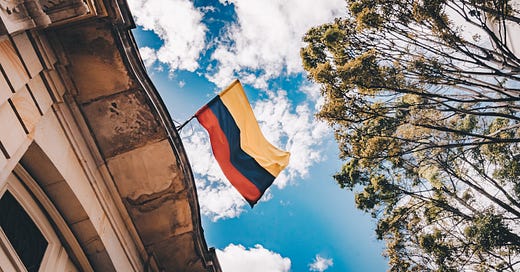Abortion is a Democratic Weathervane
As Colombia moves toward human rights and equality, the US moves away
Feminists in Colombia scored a major victory this week: The Colombian Supreme Court has fully decriminalized abortion. Before this point, women in Colombia could only get safe, legal abortion if a pregnancy threatened their health, if the fetus had serious health issues, or if they were pregnant as a result of rape. Women who ended pregnancies outside of those circumstances could face as long as four and a half years in jail. Now, abortion is available to anyone in Colombia who needs one.
Part of the issue with the previous Colombian law was that educated and relatively affluent women in urban centers knew how to get around it — how to procure safe abortion-inducing medications, or how to qualify for one of the exceptions. Poor women and women without as much formal education were often stuck. Without the right contacts, they largely had to “choose” between forced childbirth and risking jail time (not to mention their lives). They were part of the huge group of women worldwide who are kept poor by restrictive abortion laws. Now, that could change.
Colombia has a very specific past that informs the present understanding of abortion rights. A decades-long civil war was, like so many conflicts, marked by endemic rape and other forms of sexual violence. Women and girls were targeted by fighters on all sides. Many were raped; some, including children, were forcibly recruited into the conflict; some were forced into abortion; some were forced to continue pregnancies and give birth. In the long aftermath of the war, women’s rights groups have fought hard to see these many reproductive and sexual crimes recognized by the courts and in reparations schemes. There have been some major victories, including a court case that recognized that a teenage girl who was forcibly recruited to the FARC, sexually abused, and forced to use contraception and undergo an abortion was a victim, too. And there is an active group of women who were raped and impregnated during the conflict, in a time when abortion was broadly outlawed in Colombia, who continue to seek justice not just for themselves, but for their children.
This is all key to understanding the significance of Colombia’s abortion law. For decades, Colombian women have lived through tremendous sexual and reproductive abuses, and seen their basic right to bodily autonomy compromised at every turn: By the rapists in the FARC and in the paramilitaries; by their own government, which for much of the country’s history outlawed abortion; by the institutions charged with offering reparations and repair to those harmed in the conflict but which repeatedly sidelined female victims and particularly victims of reproductive violence; by the formal patriarchy of the Catholic church and the increasingly influential male-run Evangelical churches that continue to advocate against abortion rights. Women in Colombia, in other words, carry with them the visceral knowledge of what happens when someone believes that a woman’s body doesn’t belong to her alone.
Keep reading with a 7-day free trial
Subscribe to Jill Filipovic to keep reading this post and get 7 days of free access to the full post archives.



